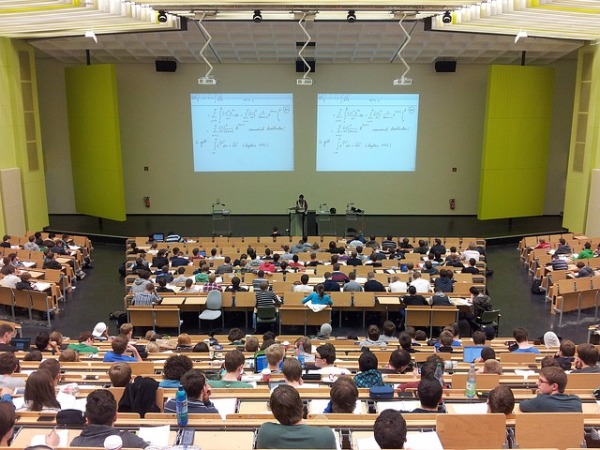When Nontraditional Students Become the Traditional Students

I was curious to look at this study that analyzes nontraditional students' perceptions of online course quality and what they "value." The authors categorized students into three groups: traditional, moderately nontraditional, and highly nontraditional. Those distinctions are what initially got my attention.
I hear more and more about "nontraditional students" to the degree that I'm beginning to believe that like any minority they will become a majority and then be what is "traditional." For years, I have been reading and experiencing the decline of traditional students who graduated high school and went immediately on to attend a four-year college, full time and with the majority living on campus. They are an endangered species - and that scares many schools.
In this study, they say that "There is no precise definition for nontraditional students in higher education, though there are several characteristics that are commonly used to identify individuals labeled as nontraditional. A study by the National Center for Educational Statistics (NCES, 2002), identified nontraditional students as individuals who meet at least one of the following qualifiers: delays enrollment, attends part-time for at least part of the academic year, works full-time, is considered financially independent in relation to financial aid eligibility, has dependents other than a spouse, is a single parent, or does not have a high school diploma. Horn (1996) characterized the “nontraditional-ness” of students on a continuum depending on how many of these criteria individuals meet. In this study, respondents’ age, dependents, employment status and student status are used to define nontraditional students."
Two-year schools as a degree and job path, part-time students working full-time, older students returning to education and other "non-traditional" sources of learning (for-profits, training centers, alternative degrees, MOOCs) have all made many students "non-traditional." Some people have talked about the increasing number of "non-students" who are utilizing online training without any intention of getting credits or a certificate or degree.
The things the non-traditional students in the study value are not surprising: clear instructions on how to get started, clear assessment criteria, and access to technical support if something goes wrong. How different from the traditional students would that be?
The conclusions of the study suggest that "nontraditional students differ from more traditional students in their perceptions of quality in online courses," but they also say that "All students place great importance on having clear statements and guidelines related to how their work will be assessed." The overlap is that students always want to know "what they need to do in order to get an A."
One belief of the authors that I have observed for my 16 years of teaching online is that non-traditional students (no matter how we define them) have "multiple responsibilities and they need to ensure that the time spent on their coursework is beneficial and productive." As teachers, we would hope that this is true of all our students, even the very traditional ones who may have fewer concerns and responsibilities that are non-academic.
As a teacher or instructional designer, this reinforces the ideas that they need courses to be: well-designed, consistently presented, easily navigable, appropriately aligned, with clearly stated expectations, and information about how to and who to contact when they encounter challenges to learning. In that sense, we are all non-traditional.
Trackbacks
Trackback specific URI for this entryThe author does not allow comments to this entry
Comments
No comments